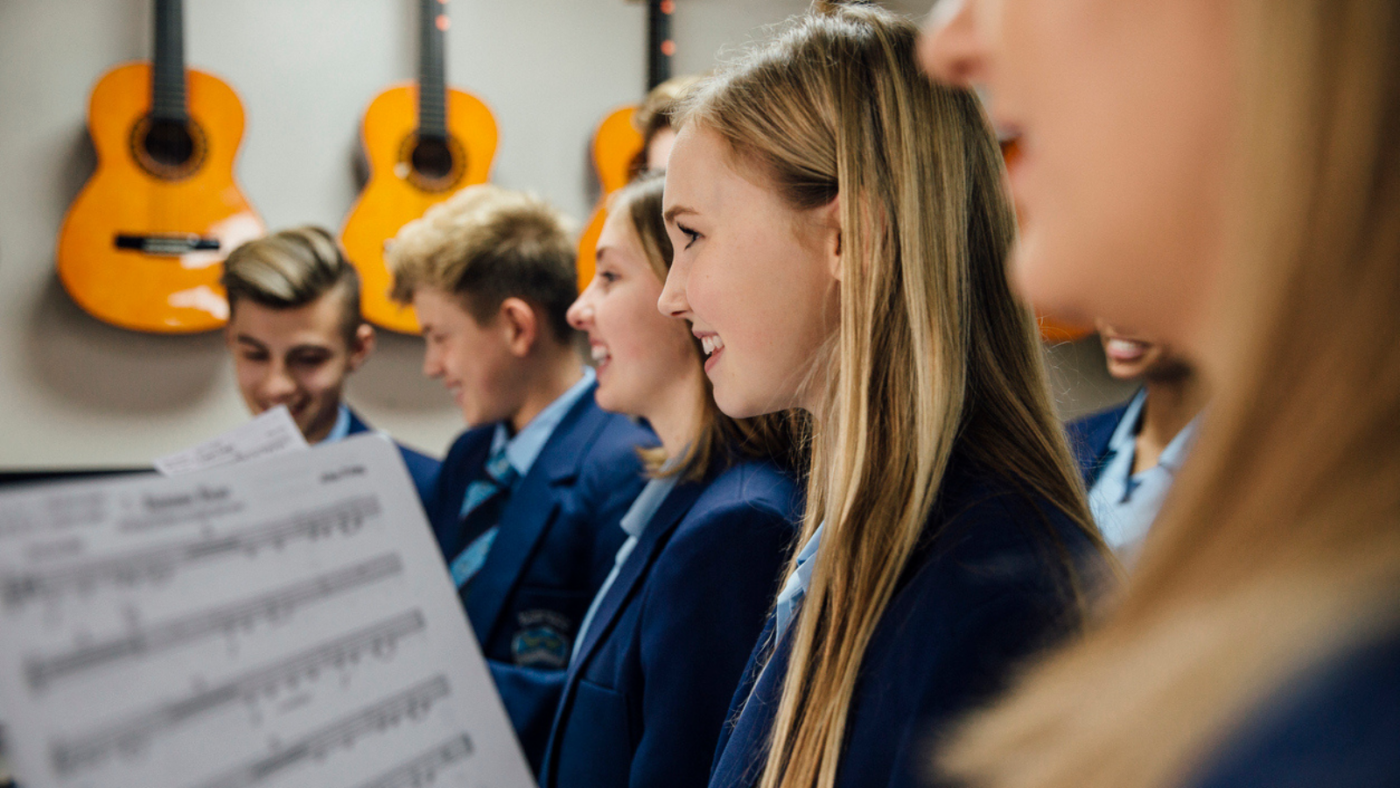Music
The Powerful Impact of Music on Learning, Wellbeing and Life
Head of Music at Services For Education, Richard Mabbott, explores the role of music in everyday life and how we as educators can use the power of music to improve education and change lives.
What would life be without music?
The role music plays in all of our lives is different and pervasive – from day-to-day instances like providing a motivational soundtrack to our daily grind in the gym, or an accompanying background hum to our daily tasks in the workplace, to the more powerful moments, where we might use music to reflect our emotions or to remind us of happier times or specific life events.
There are not many aspects of our lives that have the power to create such a powerful response as listening to our favourite song or piece of music does, and I challenge you to think of a day when you did not hear any music at all!
The Benefits of Music Education
Arts based education, and in particular music education, has never been in such a precarious position nationally.
With the political and economic climate over the last few years and the resulting budget cuts, music in schools, and in society, is often seen as a luxury, or something that can be easily sacrificed for a short sighted “quick win” in other areas.
By following this path, as a society we run the risk of preventing our children and grandchildren having the same opportunities that we did.
In a world where Social, Emotional and Mental Health issues amongst young people are at an all-time high, Music must be seen as part of a vaccine to this epidemic.
Enabling young people to express themselves though music and other art forms encourages communication, resilience, emotional intelligence and a willingness for self-reflection that so many find difficult through words.
To take away this opportunity would be dangerous and one we should fight against at every given opportunity.
How Music Can Improve Education
Multiple studies have shown that music can have a positive impact on many areas of a child’s learning.
You can read about one of them here:
- The Power of Music: An Exploration of the Evidence
- Children’s brains develop faster with music training
- Musical training can improve attention and working memory in children
There are many reasons to have music at the heart of a broad and balanced curriculum, not least it’s ability to enhance the literacy, language and numeracy skills of a child.
However, more fundamental to the study of music is the high level of academic rigour and self-discipline needed to succeed.
This can open the doors to career pathways both in the arts and beyond.
The wider benefits of Music
As well as these academic benefits, the study of Music enhances a number of social and emotional skills in young people. These include:
- Communication and Language: Music enhances a child’s ability to communicate and express themselves.
- Resilience: Studying Music is not always easy! Building an inner steel when things don’t always go right the first time is an important facet of a child’s development.
- Emotional Intelligence: Young people can often struggle to express themselves in an appropriate manner. Music gives young people another outlet to do this and finds them a safe space where they can let their emotions be seen.
- Creativity: In a world governed by rigid structures, AI and social media, music enables young people to think round problems and look beyond the obvious.
By placing music at the heart of your curriculum, educators can provide a dynamic and inclusive learning environment that caters to different learning styles and build effective citizens of the future.
Summary
So, I end where I started – what would your life be without music?
We’ve all got memories where music has played a key role in our lives – and we all have a role in both enabling the young people of Birmingham to make their own musical memories and building strong and resilient citizens of the future.
It’s a fight we can win.
Who are Services For Education?
At Services For Education, we employ over 180 staff that spread this musical message every day across the city.
Whether delivering individual, small group, or full class lessons in schools, working as part of our Music School that delivers lessons at the evenings or weekends, or as part of our wide ranging (and free) ensembles offer, each of our colleagues play a vital role in spreading the important musical message to future generations.
If you would like to learn more about our music services and how we could enhance your pupils’ education, please get in touch here – [email protected] or browse our offer here.
About the Author
 Richard Mabbott - Head of the Music Service, Services For Education
Richard Mabbott - Head of the Music Service, Services For Education
A former choral scholar, Richard joins Services For Education after 15 years working in secondary schools having started his career as a classroom teacher in an inner-city school in Sheffield, before becoming Head of Music at Hessle High School in East Yorkshire in 2011. Whilst there, he became Specialist Leader of Education for Music working with schools in Yorkshire and Humber region to enhance the classroom music offer and build networks of music teachers enabling pedagogical developments and performance opportunities to be shared more readily.
In 2019 Richard was appointed Assistant Headteacher at Withernsea High School as part of a small senior team to deliver improvement to enhance the life chances of the school’s students. Amongst his achievements was the development of the much praised ‘Classically Yours’ programme with Manchester Camerata - a project that brought a world class orchestra to perform an annual concert in a remote East Yorkshire school and which continues to this day.


 Lucie Welch – Adviser, Services For Education
Lucie Welch – Adviser, Services For Education Jo Perrin - Interim School Support Lead, Adviser, Services For Education
Jo Perrin - Interim School Support Lead, Adviser, Services For Education


